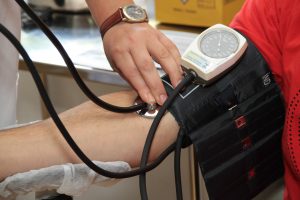Previously on the blog, we’ve had a few conversations about the personal statement. In the personal statement planning post, we talked about the importance of brainstorming ideas for your personal statement. Last week, we delved further into personal statement drafting. To recap: when it comes time to draft your personal statement, there are some important things to keep in mind that can help you write an outstanding personal statement — like telling a story, being conscious of your audience, organizing it to optimize fluency, and keeping the statement succinct.
That advice can serve as a foundation for a successful personal statement, but as you write, you need to be careful to avoid certain pitfalls that can derail your personal statement and reduce your chances of getting matched. Here is a list of some things NOT to do on your personal statement:
- Do NOT simply rewrite your CV in paragraph form. On your residency application, you only have a certain amount of space available to demonstrate why you are an excellent candidate for a US medical residency program. If your personal statement only serves to repeat what is already on your CV, it won’t be adding anything to your application. You should choose a few particularly meaningful experiences from your CV and expand on them in greater depth, explaining how exactly they shaped your academic interests and career goals.
- Do NOT use your medical school application as a template. Many residency applicants make the mistake of simply tacking on a paragraph about a residency to the end of their medical school personal statement. However, residency application readers are more interested in why you chose a particular specialty area — not why you wanted to enter the field of medicine in the first place. They also want to know about your long-term career goals, which should be much more clear than they were when you first applied to medical school.
- Do NOT focus on political or religious issues. You never know who your reader will be, so you should be careful about discussing controversial topics. If a particular life experience related to politics or religion truly merits discussion — for instance, if you worked on a political campaign or volunteered for a religious charity — make sure to discuss it in a way that highlights how it shaped your experience and demonstrates your suitability for the residency program. Don’t spend time touting the political or religious message. The personal statement should be about you.
- Do NOT try to be funny. On a personal statement, humor tends to fall flat. While it might be okay to include a witty comment or two, remember that you are discussing a very serious topic: your future training as a physician. You do not want your application reader to think that you are taking the subject lightly. Also, as a foreign medical graduate, there are sometimes cultural barriers when it comes to humor. An obvious joke in your country may be confusing for an American application reader, so it’s usually better not to risk it.
- Do NOT use abbreviations, jargon, slang, or profanity. Remember that a residency application is essentially a job application, so you need to be professional with your language. You want to let your genuine voice shine through, but you don’t want to come off too casual. Also, abbreviations and jargon might be familiar to you, but they may confuse your application reader and distract from your message. If you need to use an abbreviation for an organization (like a medical society or volunteer group), make sure to spell it out first so your reader knows what you are talking about.
- Do NOT be too repetitive. Application readers will notice if you use the same words over and over or if you start all of your sentences the same way. Don’t worry about it too much when writing the first draft of your personal statement, but as you read it over, try to find ways to vary your sentence structure. A thesaurus can also come in handy when looking for synonyms.
- Do NOT try to make your writing too complex. While the last bullet point on avoiding repetitiveness is important, remember that your goal is to explain why you are an excellent candidate for a medical residency — not to impress your application reader by using lots of big words. Especially if English is your second language, stick to words and sentences that are simple, direct, and focused on your topic.
Your personal statement is one of the most important documents in your medical residency application, so it is essential to avoid common mistakes. That way, you can ensure that your reader will remember all of the reasons why you are a good candidate who is well-prepared to succeed in their program.
Need more help with residency placement? FMG Portal offers a wide range of helpful services for foreign medical graduates. Contact us today!









